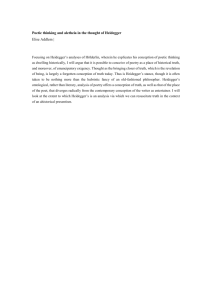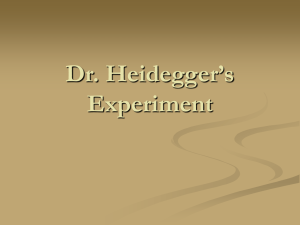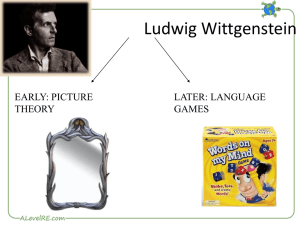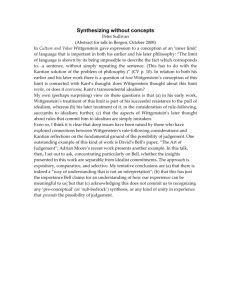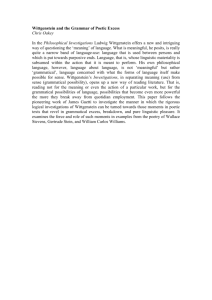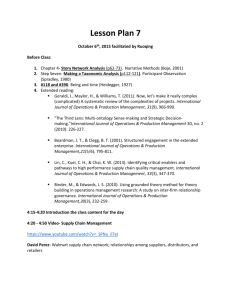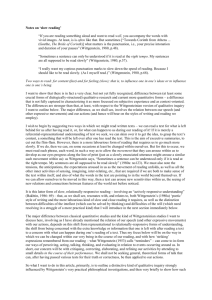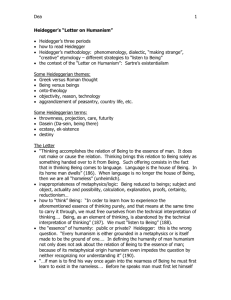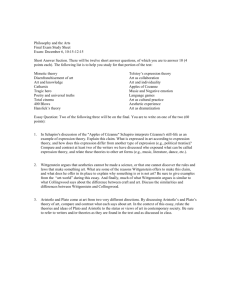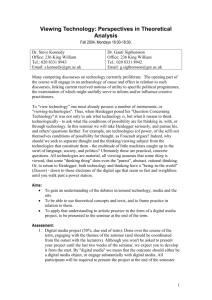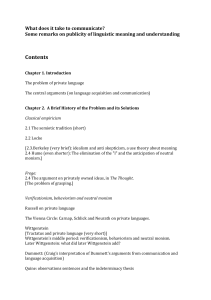de Zengotita
advertisement
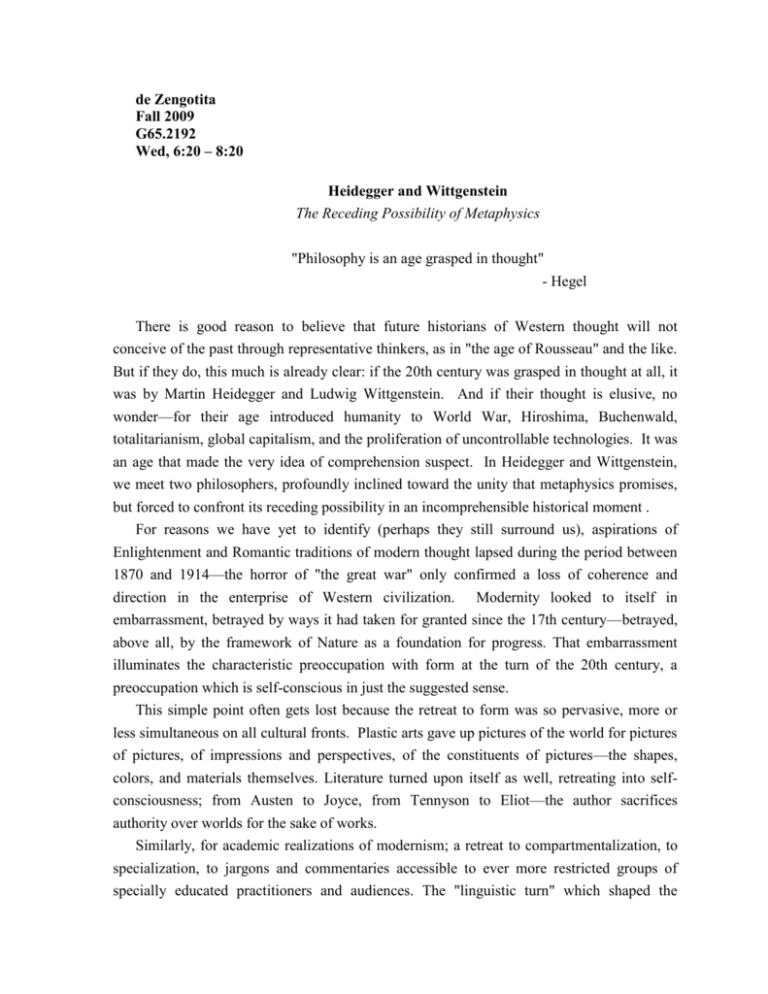
de Zengotita Fall 2009 G65.2192 Wed, 6:20 – 8:20 Heidegger and Wittgenstein The Receding Possibility of Metaphysics "Philosophy is an age grasped in thought" - Hegel There is good reason to believe that future historians of Western thought will not conceive of the past through representative thinkers, as in "the age of Rousseau" and the like. But if they do, this much is already clear: if the 20th century was grasped in thought at all, it was by Martin Heidegger and Ludwig Wittgenstein. And if their thought is elusive, no wonder—for their age introduced humanity to World War, Hiroshima, Buchenwald, totalitarianism, global capitalism, and the proliferation of uncontrollable technologies. It was an age that made the very idea of comprehension suspect. In Heidegger and Wittgenstein, we meet two philosophers, profoundly inclined toward the unity that metaphysics promises, but forced to confront its receding possibility in an incomprehensible historical moment . For reasons we have yet to identify (perhaps they still surround us), aspirations of Enlightenment and Romantic traditions of modern thought lapsed during the period between 1870 and 1914—the horror of "the great war" only confirmed a loss of coherence and direction in the enterprise of Western civilization. Modernity looked to itself in embarrassment, betrayed by ways it had taken for granted since the 17th century—betrayed, above all, by the framework of Nature as a foundation for progress. That embarrassment illuminates the characteristic preoccupation with form at the turn of the 20th century, a preoccupation which is self-conscious in just the suggested sense. This simple point often gets lost because the retreat to form was so pervasive, more or less simultaneous on all cultural fronts. Plastic arts gave up pictures of the world for pictures of pictures, of impressions and perspectives, of the constituents of pictures—the shapes, colors, and materials themselves. Literature turned upon itself as well, retreating into selfconsciousness; from Austen to Joyce, from Tennyson to Eliot—the author sacrifices authority over worlds for the sake of works. Similarly, for academic realizations of modernism; a retreat to compartmentalization, to specialization, to jargons and commentaries accessible to ever more restricted groups of specially educated practitioners and audiences. The "linguistic turn" which shaped the professionalization of anglo-american philosophy was an especially interesting manifestation of modernist withdrawal, a last attempt to retain the wholeness of the world in a comprehension of the primary medium of its representation. Finally, the "bracketing" which initiated Husserl's phenomenology allowed professional philosophers to retain relations with the wholeness of the world without committing themselves to it. Wittgenstein (protégé of Russell) and Heidegger (student of Husserl) take their places when we realize that each of them, working from within those two traditions of 20th century philosophy, worked their separate ways out of them and went back to the Cogito, to modernity's point of departure and, from there, made an attempt to recover Being and the world as a whole—that is, to recover something like the God who had saved Descartes from solipsism to begin with. But in the 20th century no proof of such salvation was to be found. What remained of metaphysics was beyond utterance. Requirements: Two informal response papers (2-3 pages; 15%) A comparative paper (15-20 pages; 70% of final grade) Attendance and participation (15%) Required Texts (At NYU Book Store): Heidegger, Martin: Being and Time, trans. J. Macquarrie and E. Robinson (New York: Harper and Row, 1962) Basic Writings, trans. Frank A. Capuzzi, with J. Glenn Gray and David Farrell Krell (ed.) (New York: Harper and Row, 1977) Wittgenstein, Ludwig: Tractatus Logico-Philosophicus, trans. D.F. Pears and B.F. McGuinness (London: Routledge and Kegan Paul, 1961) Philosophical Investigations (New York: Macmillan, 1953) Monk, R. Ludwig Wittgenstein (New York: Free Press, 1990) Safranski, R. Martin Heidegger, trans. E. Osers (Cambridge: Harvard University Press, 1998) Also, at University Copy, Waverly and Mercer, a Xeroxed packet of excerpts from the course bibliography
